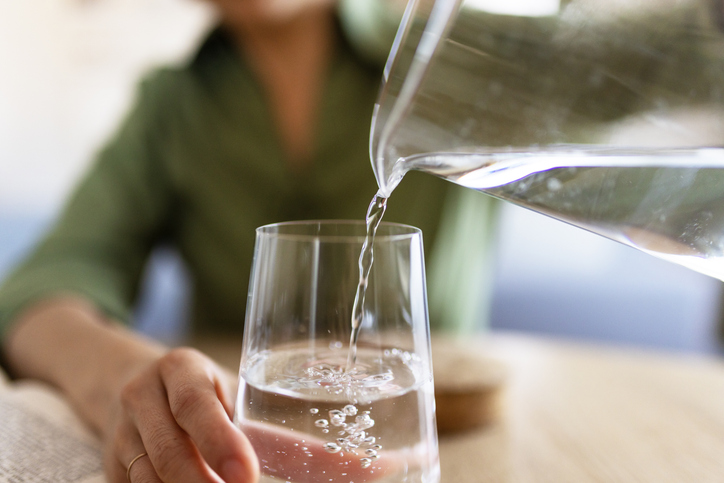Staying hydrated during the summer is essential, but real hydration goes beyond simply drinking more water. Our bodies constantly respond to heat, caffeine, screen time, and indoor environments like air-conditioned offices—all of which affect our fluid levels in ways we often overlook. Understanding these influences can help us maintain focus, energy, and overall wellness in both work and play settings.
Water makes up about 60% of the human body and is critical to nearly every biological function, from regulating temperature and supporting brain function to lubricating joints and delivering nutrients. According to the U.S. National Academies of Sciences, Engineering, and Medicine, the recommended daily water intake is approximately 3.7 liters (125 ounces) for men and 2.7 liters (91 ounces) for women, including fluids from both drinks and food. But reaching these numbers isn’t just about sipping from a bottle—it’s also about counteracting the daily drain on your system.
Caffeine, for example, acts as a mild diuretic, increasing fluid loss through urination. While moderate coffee intake is safe, it contributes to your overall hydration equation. Add to that the effects of summer heat, which increases sweat and evaporation, and you have a recipe for rapid dehydration—even without intense exercise. Mild dehydration, defined as a fluid loss of just 1–2% of body weight, has been linked to symptoms like fatigue, irritability, and difficulty concentrating, according to the Mayo Clinic.
Then there’s the hidden impact of our indoor lives. Air-conditioned spaces lower humidity, drying out the air and subtly accelerating water loss through your skin and respiratory system. If you’re working long hours on a screen, the problem compounds—your blink rate drops, increasing the risk of dry eye and discomfort. Even your skin can feel tighter or more prone to irritation after a day under cool, filtered air. Adding a humidifier or placing a bowl of water near vents can help, but staying internally hydrated is key.
Electrolytes also play an important role in hydration. These minerals—like sodium, potassium, and magnesium—help regulate fluid balance inside and outside your cells. If you’re sweating heavily from exercise or outdoor work, plain water might not be enough. Adding an electrolyte drink, a pinch of sea salt, or opting for foods like bananas, spinach, or coconut water can help restore your body’s natural equilibrium.
Smart hydration is about building habits. Carry a reusable water bottle and aim to refill it at least three times a day. Begin and end your day with a glass of water. Eat water-rich foods like cucumbers, watermelon, and leafy greens. Set a phone reminder or use a hydration tracking app to build awareness. These small actions help prevent the cumulative effects of dehydration, which can impact everything from your mood to your metabolism.
Ultimately, hydration is proactive. By staying ahead of the environmental and lifestyle factors that deplete your system, you give your body the tools it needs to perform, think, and recover better. Whether you’re powering through a deadline or heading outside for a hike, staying hydrated is one of the simplest—and most effective—ways to protect your health this summer.




